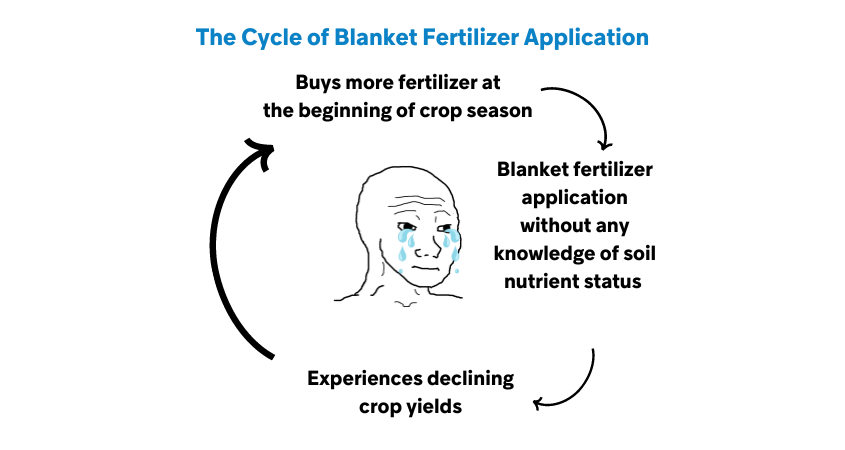
At this stage the farmer is purchasing fertilizers without assessing the soil’s nutrient needs, potentially leading to over-application or inappropriate use of fertilizers.
In this stage, the farmer applies fertilizers across the entire field without understanding the specific nutrient deficiencies or excesses present in the soil. This approach can be inefficient and may not address the actual needs of the crops.
Due to the lack of proper soil testing and targeted fertilizer application, the farmer experiences diminishing returns in crop yield. This prompts the farmer to revert to stage 1, restarting the cycle by purchasing more fertilizers without addressing the underlying issue of soil nutrient imbalance.
This cycle demonstrates the importance of soil testing as a crucial step in efficient and sustainable agriculture. Soil testing provides valuable information about the soil’s nutrient levels, allowing farmers to make informed decisions about fertilizer application tailored to the specific needs of their crops and soil conditions. By breaking this cycle through soil testing and targeted fertilizer application, farmers can optimize their inputs, reduce costs, and improve crop productivity in the long term.
Grow more with less
#savesoil #soilhealth #soilscience
Order our services and get to know how to improve your soil for better yeilds.